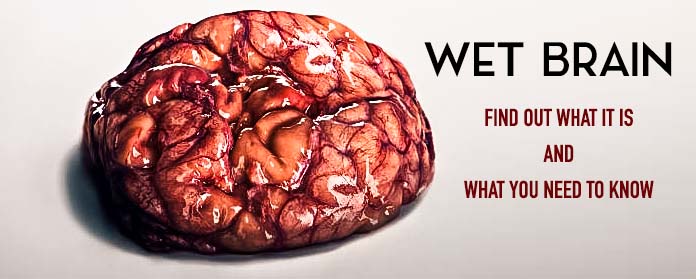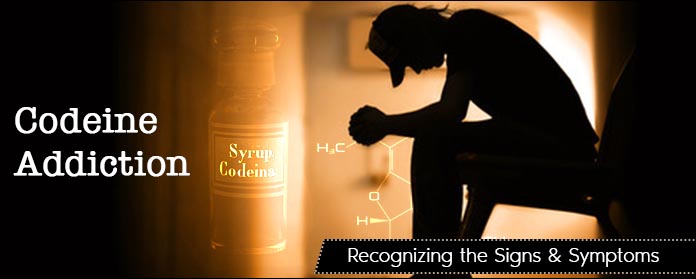What is Wet Brain?
- Description 1: A Chronic Brain Disorder
- Description 2: Wernicke-Korsakoff Syndrome
- Description 3: Korsakoff’s Psychosis
Wernicke Korsakoff Syndrome, also known as wet brain, is an issue that many alcoholics may face at some point in their life. Wet brain is caused by alcohol’s impact of blocking the body’s ability to absorb thiamine, a key component in making the brain work effectively.
Without thiamine, the brain will begin to bleed, leading to some very bad symptoms for the person suffering. If not dealt with immediately, wet brain can lead to permanent impacts or even death.
[toc]
Wet Brain Facts
1. The Importance of Thiamine
Thiamine, also known as Vitamin B1, is a vitamin that is important to overall brain health and well being. Its primary job is making it possible for the body to use the carbohydrates that you consume as energy. Without it, the brain, heart, and other organ functions begin to falter and you begin to feel weaker.
There are many foods that have thiamine in them, including yeast, beef, whole grain, and eggs. By keeping these foods in your diet, you can help your thiamine intake and make sure that your organs are working overall. Without thiamine, your organs will soon begin to falter.
2. It Comes Out of Nowhere
Whereas many issues with alcoholism typically come slowly over time, wet brain is a sudden occurrence that comes with very little warning. Oftentimes, it shows itself when someone takes a large dose of glucose that the body simply can not process without the vitamin B1.
For this exact reason, it’s very hazardous for alcoholics to take in a large number of sweets and foods that have little to no vitamins. This will simply increase the glucose intake of the body without contributing to an increase in vitamin B12.
Due to the sudden onset of this disease, it’s important to constantly be aware of your diet if you’re an alcoholic.
3. Stage 1: Wernicke’s Encephalopathy
Wet brain occurs in two stages. The first stage is the more important stage to notice because, at this point, no permanent changes have necessarily taken place. In the first stage, the main symptoms that are shown are confusion, loss of coordination, and slight muscular lags.
In the first stage, the brain has started to bleed slightly, causing damages to many of the vital sections and many of its operations. The treatment at this stage comes in the form of thiamine injections, and complete alcohol detox must be committed to.
4. Stage 2: Korsakoff’s Psychosis
The significantly more serious second stage of wet brain is when the true problems begin to take hold. If a patient does not receive immediate treatment during the first stage of wet brain or continues to drink after recovery, Korsakoff’s Psychosis will surely set in much worse consequences.
In Korsakoff’s Psychosis, patients will experience a severe decline in brain capability. Common symptoms include memory loss, hallucinations, and general disorientation. At the point of stage 2, symptoms are generally irreversible. The brain bleeding that has happened will not be repaired, and patients can be permanently impacted.
5. It Can Often Be Fatal
Once stage 2 fully sets in, the amount of brain bleeding that has taken place can often be fatal. If that does not end up taking away your life, the complicating symptoms that come with it will cause you further harm which can, at times, lead to death.
Stage 2 of wet brain is often fatal due to the amount of brain bleeding and brain lesions that have set in. Oftentimes, the brain can no longer continue to operate the organs or the body’s systems will overall shut down. The brain itself begins to die, and the patient along with it.
6. It Is More Common Than You Think
Though wet brain is not a well-known disease, it is actually more common than you may think. The national organization for rare diseases estimates that anywhere from 1-2 percent of the general US population currently has wet brain. Though the severities may change, the danger is still clearly there.
Generally speaking, this disease is mainly found in males. This may be attributed to the fact that men are typically heavier drinkers than women. On top of that, the disease is most prevalent among 30-70-year-olds, as the brain is fully developed at this point in life.
7.How Is It Treated?
Wet Brain is a very difficult disease to treat if caught too late, specifically in stage 2. But, in stage 1, there are ways to improve the situation to an almost normal level. In order to treat wet brain, doctors will first focus on controlling the dangerous symptoms associated with wet brain.
Once those symptoms are controlled, the doctor will focus on reintroducing thiamine to the body. Depending on the severity of the case, this can happen through injections, diet changes, or some form of oral prescription. Alcohol, from then on, is essentially a no-go for patients.
8. Alcohol Is Not the Only Cause of Wet Brain
While we have been discussing the way that alcohol impact thiamine intake, there are other causes that may lead to a lower amount of Vitamin B12 in the body. Having a bad diet is one thing that may contribute to wet brain. Long periods of vomiting or bulimia may also lead to a Vitamin B12 deficiency.
Alcohol is simply seen as a leading cause of wet brain because it is the most common inhibitor of thiamine. Dietary issues or bulimia are relatively rare when compared to alcoholism, and would need to be very severe to lead to wet brain.
Symptoms of Wet Brain
Stage One: Wernicke’s Encephalopathy
- confusion
- loss of coordination
- slight muscular lags
Stage Two:Korsakoff’s Psychosis
- severe decline in brain capability
- memory loss
- hallucinations
- general disorientation
Wet Brain In Alcoholics
There are many negatives to alcoholism, and wet brain is just one of many examples. Impaired decision making, liver failure, and general dietary issues are common symptoms of alcoholism in this country.
If you or a loved one are trying to beat alcoholism for any reason, be it to improve your living situation or to avoid the potentially fatal consequences of wet brain, it may be a good idea to reach out for professional support.
References:
- https://medlineplus.gov/ency/article/000771.htm
- http://hams.cc/wetbrain/
- https://www.verywellhealth.com/what-is-wernicke-korsakoff-98769
- https://pubs.niaaa.nih.gov/publications/arh27-2/134-142.htm
- https://rarediseases.org/rare-diseases/wernicke-korsakoff-syndrome/
- https://www.ncbi.nlm.nih.gov/pubmed/16117048
- https://www.medicalnewstoday.com/articles/219545.php





